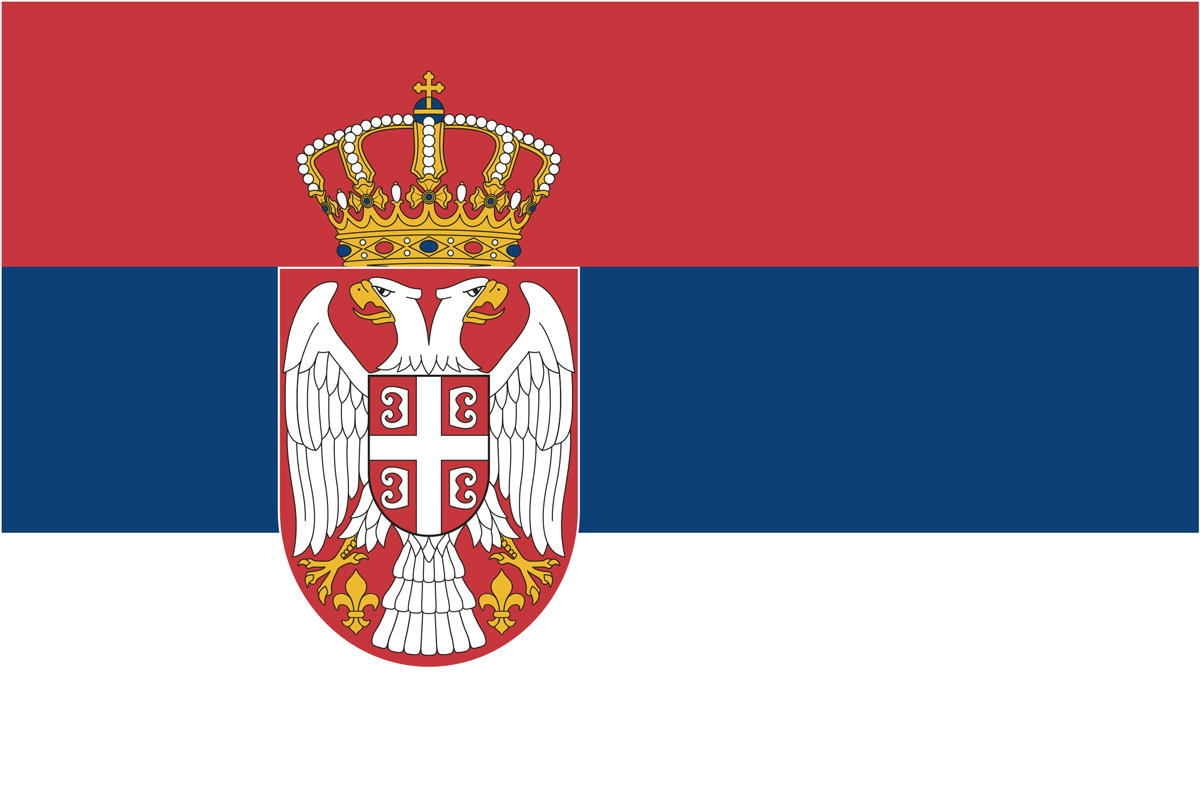
European Congress on Intrapartum Care 2023
Format: 15 videos + 1 pdf, size: 6.42 GB
Course Audience: pediatric physican, primary care physician
Overview:
Main Topics
- Physiology of labour
- Collaboration influencing positive outcome
- Back to the future: instrumental vaginal delivery
- Labour in specific situations
- Induction & augmentation of labour
- Perineal trauma
- Intrapartum care
9-11 March 2023
Belgrade, SerbiaLearn the best practices in all aspects of labour management
 Simultaneous Translation in Serbian is provided.Obezbedjen je simultani prevod na srpski jezik.
Simultaneous Translation in Serbian is provided.Obezbedjen je simultani prevod na srpski jezik.
*Note: these are continuous video recordings during the conference, they include individual lectures mentioned in the Detail section below
Scientific Information (PDF Format)
Closing (Video MP4 Format)Key Note Lecture 1 Caesarean Section at full dilatation – an emerging problem (Video MP4 Format)Key Note Lecture 2 Staff burnout in Maternity Care – can we do better (Video MP4 Format)Key Note Lecture 3 Communication with patients and partners during and after an emergency (Video MP4 Format)Lunch Symposium (Video MP4 Format)Opening and Session 1 Setting the scene, national, european and global (Video MP4 Format)Oral Presentations Session 1 (Video MP4 Format)Oral Presentations Session 2 (Video MP4 Format)Panel 1 Fetal monitoring (Video MP4 Format)Session 2 Optimising vaginal birth (Video MP4 Format)Session 3 Optimising Neonatal Outcomes on the labour ward (Video MP4 Format)Session 4 The Third Stage of Labour (Video MP4 Format)Session 5 Environmental impact on maternity care – Sustainable Labour Ward (Video MP4 Format)Session 6 Prematurity on the labour ward (Video MP4 Format)Session 7 Intrapartum care (Video MP4 Format)
* Detail:
Session 1 17:25-19:00 Setting the scene, national, european and global Chairs: Gerard Visser (the Netherlands), Mervi Jokinen (UK)
17:25-17:40 Overview Serbian maternity care Ljiljana Mirkovic (Serbia)17:40-17:50 Midwifery education and scope of role in Serbia Ljubica Nicolic (Serbia)17:50-18:05 IMAgiNE EURO – Maternity and Perinatal Care Quality after COVID-19 Marzia Lazzerini – (Italy, WHO)18:05-18:25 When are your cesarean delivery rates too high? Diogo Ayres-de-Campos (Portugal)18:25-18:45 The issue of rising caesarean section rates due to huge difference in care between public and private clinics Melania Tudose (Romania)18:45-19:00 General discussionSession 2 08:30-10:15 Optimising vaginal birth Chairs: Branka Yli (Norway), Melania Tudose (Romania)
08:30-08:50 Avoiding Brain injury in Childbirth Wendy Randell (UK)08:50-09:10 Watchful attendance in labour Ank de Jong (the Netherlands)09:10-09:15 Selected short oral communication (3’/2′)09:15-09:35 Optimising assisted vaginal birth – New European Guidelines Tim Draycott (UK)09:35-09:45 Selected oral communication (7’/3′)09:45-09:55 Selected oral communication (7’/3′)09:55-10:15 Discussion10:15-11:00 Coffee break & poster visitSession 3 11:00-12:45 Optimising Neonatal Outcomes on the labour ward Chairs: Susanna Timonen (Finland), Agnes Simon (France)
11:00-11:20 Optimising transition from fetus to newborn Ola Andersson (Sweden)11:20-11:25 Selected short oral communication (3’/2′)11:25-11:45 The relevant first five minutes for the extreme preterm Maximo Vento (Spain)11:45-11:55 Selected oral communication (7’/3′)11:55-12:05 Selected oral communication (7’/3′)12:05-12:20 Temperature management of new born babies Daniele Trevisanuto (Italy)12:20-12:45 General discussion12:45-14:10 Lunch & Poster visitSession 4 14:10-15:55 The Third Stage of Labour Chairs: Austin Ugwumadu (UK), Gergana Nikolova (Bulgaria)
14:10-14:30 Update on Prevention of PPH Loic Sentilhes (Bordeaux, France)14:30-14:50 Treatment of PPH – FIGO guidelines Anwar Nassar (Lebanon)14:50-14:55 Selected short oral communication (3’/2′)14:55-15:15 Placenta accreta spectrum disorders: form prenatal diagnosis to prediction of prognosis Francesco D’Antonio (Italy)15:15-15:25 Selected oral communication (7’/3′)15:25-15:35 Selected oral communication (7’/3′)15:35-15:55 Discussion15:55-16:20 Coffee break & poster visitKey note lecture 1 16:20-16:50 Caesarean Section at full dilatation – an emerging problem Katie Cornthwaite (UK)
Panel 1 16:50-18:15 Fetal monitoring Chairs: Anneke Kwee (the Netherlands), Vanessa Cole (UK)
16:50-17:10 CTG-monitoring in extreme premature birth Eline van ’t Hof (the Netherlands)17:10-17:30 STan Australian Randomised controlled Trial (START) Sabrina Kuah and Bronni Simpson (Australia)17:30-17:50 Amniotic fluid lactate Eva Wiberg-Itzel (Sweden)17:50-18:15 DiscussionSession 5 08:30-10:10 Environmental impact on maternity care – Sustainable Labour Ward Chairs: Diogo Ayres de Campos (Portugal), Agnes Simon (France)
08:30-08:50 Pollution and its effect on Reproductive Health Maria Pinto Correia Watts (UK)08:50-09:10 Dump the disposables Anneke Kwee (the Netherlands)09:10-09:30 Epidural v Entonox – which is greener Rosanne van der Sterre (the Netherlands)09:30-09:40 General discussionKey Note Lecture 2 09:40-10:10 Staff burnout in Maternity Care – can we do better? Vesna Kesic (Serbia)
10:10-10:40 Coffee break & poster visitSession 6 10:40-12:15 Prematurity on the labour ward
10:40-11:10 Management of preterm birth – the goods and the bads Gerard Visser (the Netherlands)11:10-11:30 Breast milk feeding in extreme preterm babies Beth Kristin Jåtten (Norway)11:30-11:45 Discussion11:45-12:45 Selected Long Oral Presentations 5 x orał communication (7’/3′)12:45-14:00 Catered lunch & Poster visitSession 7 14:00-15:50 Intrapartum care Chairs: Susanna Timonen (Finland), Vanessa Cole (UK)
14:00-14:15 Labour Care for sexual violences victims (in Labour in specific situations) Georges-Emmanuel Roth (France)14:15-14:30 Reducing Oxytocin in active phase: the Stopoxy Trial Aude Girault (France)14:30-14:45 Prophylactic Manual Rotation of Persistent Occiput Posterior to decrease operative Delivery: a Multicentric Randomized Trial – PROPOP TrialJulie Blanc (France)14:45-15:00 Management of the breech birth Jorg Kessler (Norway)15:00-15:15 Midwife led maternity care Ruth Martis (New Zealand)15:15-15:30 Prevention of perineal trauma Katariina Laine (Norway)15:30-15:50 General discussion15:50-16:20 Coffee break & poster visitOral Presentations Session 16:20-16:45 Selected oral presentations
16:20-16:25 Selected short oral communication (3’/2′)16:25-16:30 Selected short oral communication (3’/2′)16:30-16:35 Selected short oral communication (3’/2′)16:35-16:40 Selected short oral communication (3’/2′)16:40-16:45 Selected short oral communication (3’/2′)Key Note Lecture 3 16:45-17:15 Communication with patients and partners during and after an emergency Sabaratnam Arulkumaran (UK)
Closing
17:15-17:25 Closing Ceremony17:15-17:20 Take-home messages & prizes Gerard Visser (the Netherlands), Mervi Jokinen (UK)17:20-17:25 Closing session